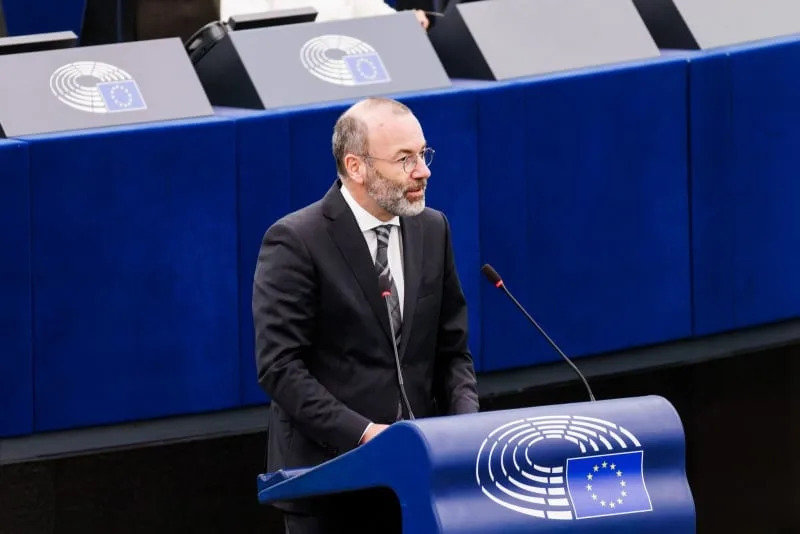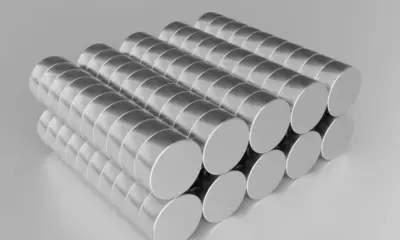World
EU Lawmaker Advocates for Syrian Refugee Returns with Exceptions

The leader of the conservative European People’s Party (EPP) in the European Parliament, Manfred Weber, has expressed support for the return of Syrian refugees to their home country, citing the need for rebuilding efforts. In an interview published by the German tabloid Bild on Sunday, Weber stated, “Those who are able to go back to Syria and help rebuild the country must leave Germany and Europe and return to Syria.” His comments highlight a growing sentiment within parts of the EU regarding the future of Syrian refugees.
Weber emphasized that the legal framework surrounding refugee support is clear. He noted, “We provide help in emergencies, but when the war is over, you have to return to your home country.” Despite his firm stance, he warned against enforcing strict timelines for returns. He acknowledged the ongoing destruction in Syria, suggesting that the situation might evolve. “If deportations in the first month are not possible because parts of Syria are still completely destroyed, then it might work the following month. But the principle must ultimately be implemented,” he remarked.
While advocating for returns, Weber also recognized the contributions of many Syrians currently living in Germany. He pointed out that those who have integrated into the local labor market play significant roles, particularly in essential sectors like healthcare. “Do we really want to send all of them back to Syria?” he questioned, reflecting a nuanced perspective within the broader conversation.
The context of Weber’s remarks is further complicated by internal debates within the conservative bloc in Germany over the issue of returns. Recently, Johann Wadephul, the Foreign Minister, sparked controversy within the party after visiting a war-torn suburb of Damascus. Wadephul expressed skepticism about the feasibility of large-scale returns, stating that living conditions in Syria remain dire. He commented that it is “barely possible” to live there with dignity given the extensive destruction.
These discussions come at a time when the EU is grappling with the implications of refugee policies in the wake of ongoing conflicts in the region. The European Union has provided substantial aid to Syrian refugees over the years, but the conversation is shifting towards long-term solutions as conditions evolve in Syria.
The positions articulated by Weber and Wadephul underscore a broader tension within European politics regarding migration, integration, and humanitarian obligations. As the situation continues to develop, the responses from both EU leaders and the Syrian diaspora will likely shape the future landscape of refugee policy in Europe.
-

 Top Stories2 weeks ago
Top Stories2 weeks agoMarc Buoniconti’s Legacy: 40 Years Later, Lives Transformed
-

 Health2 weeks ago
Health2 weeks agoInnovative Surgery Restores Confidence for Breast Cancer Patients
-

 Sports4 weeks ago
Sports4 weeks agoSteve Kerr Supports Jonathan Kuminga After Ejection in Preseason Game
-

 Science4 weeks ago
Science4 weeks agoChicago’s Viral ‘Rat Hole’ Likely Created by Squirrel, Study Reveals
-

 Politics4 weeks ago
Politics4 weeks agoDallin H. Oaks Assumes Leadership of Latter-day Saints Church
-

 Entertainment4 weeks ago
Entertainment4 weeks agoZoe Saldana Advocates for James Cameron’s Avatar Documentary
-

 Business4 weeks ago
Business4 weeks agoTyler Technologies Set to Reveal Q3 2025 Earnings on October 22
-

 Lifestyle4 weeks ago
Lifestyle4 weeks agoKelsea Ballerini Launches ‘Burn the Baggage’ Candle with Ranger Station
-

 Business3 weeks ago
Business3 weeks agoZacks Research Downgrades Equinox Gold to Strong Sell Rating
-

 Health2 weeks ago
Health2 weeks ago13-Year-Old Hospitalized After Swallowing 100 Magnets
-

 Entertainment3 weeks ago
Entertainment3 weeks agoTom Cruise and Ana de Armas End Romance Amid Career Focus
-

 Lifestyle4 weeks ago
Lifestyle4 weeks agoDua Lipa Celebrates Passing GCSE Spanish During World Tour









